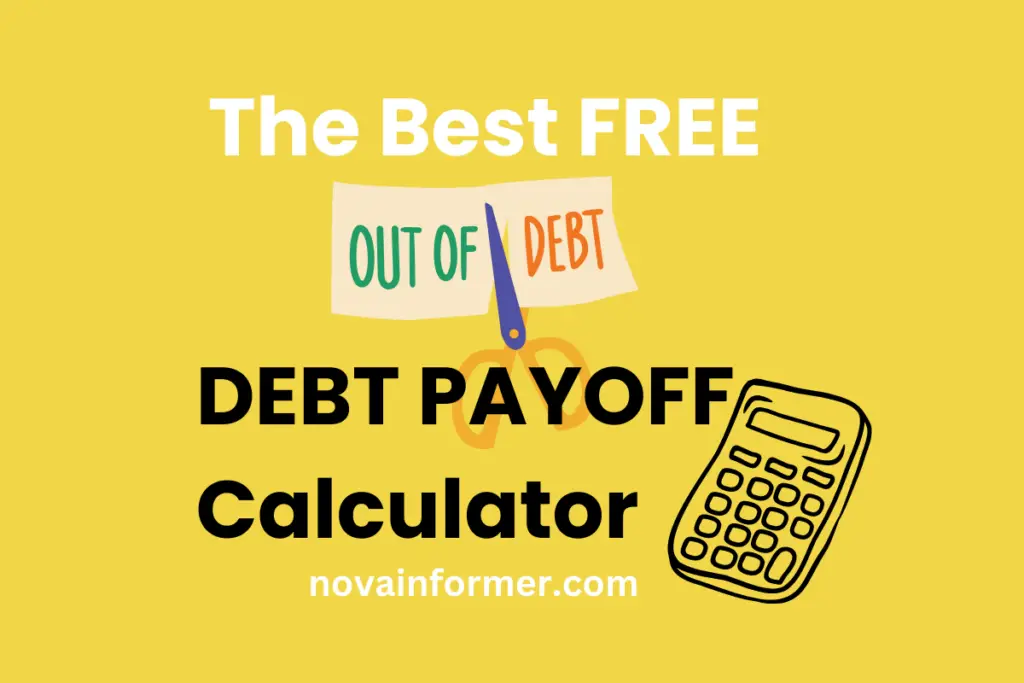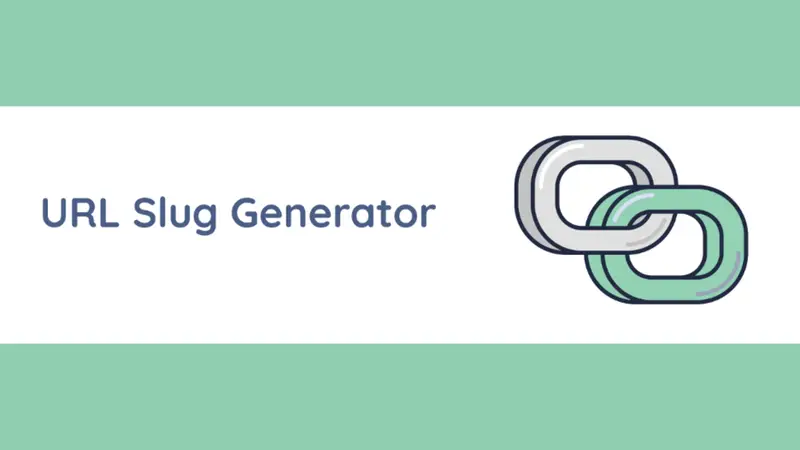Empower your financial journey with our Debt Payoff Calculator – your key to debt-free success.
Key Takeaways:
- Understand the types and impact of debt on your financial health.
- Create a strategic debt repayment plan to regain control.
- Negotiate with creditors and explore additional income sources.
- Prioritize high-interest debts using effective methods like the debt snowball or avalanche.
- Build an emergency fund and focus on long-term financial well-being.
Introduction to Debt: Navigating the Financial Landscape
Debt, the four-letter word that can either empower or constrain us financially. Whether it’s student loans, credit card balances, or mortgages, debt has become a ubiquitous part of modern life. But fear not, we’re here to guide you through the labyrinth of debt and help you emerge victorious on the other side.
Defining Debt and Its Many Faces
Debt isn’t just about owing money; it’s a financial commitment that can shape our financial destiny. Let’s break it down:
- Secured vs. Unsecured Debt:
- Secured: Tied to an asset (e.g., a mortgage).
- Unsecured: No collateral (e.g., credit cards).
- Good Debt vs. Bad Debt:
- Good: Investments like education or a home.
- Bad: High-interest consumer debts.
The Silent Thief: Understanding the Cost of Debt
Before we dive into strategies, let’s examine the silent thief – interest rates and fees. A table for your reference:
| Debt Type | Average Interest Rate | Common Fees |
|---|---|---|
| Credit Card | 16.61% | Annual fees, late fees |
| Student Loan | 4.29% – 7.99% | Origination fees |
| Personal Loan | 9.41% | Origination fees |
| Mortgage | 3.00% – 4.50% | Closing costs |
Types of Debt and Crafting Your Debt Repayment Plan
Crafting a Debt Repayment Plan
The first step toward financial freedom is understanding where you stand. Let’s craft a debt repayment plan tailored to your unique situation:
- Assess Your Financial Situation:
- List all debts, interest rates, and monthly payments.
- Calculate your total monthly income.
- Setting Realistic Goals:
- Break down your total debt into manageable milestones.
- Prioritize debts based on interest rates and amounts.
Prioritizing Debt: Snowball vs. Avalanche Method
Choosing the right strategy can make a world of difference. Here’s a comparison:
| Criteria | Debt Snowball | Debt Avalanche |
|---|---|---|
| Principle | Start with smallest debt | Start with highest interest debt |
| Psychological Boost | Quick wins boost motivation | Long-term savings on interest |
| Interest Savings | May pay more in interest | Saves more on interest over time |
| Time to Pay Off | May take longer overall | Generally faster in the long run |
Negotiating with Creditors: A Masterclass in Diplomacy
Negotiation is an art, and it’s time to channel your inner diplomat:
- Tips for Negotiating:
- Be honest about your financial situation.
- Request lower interest rates.
- Explore debt consolidation options.
Earning Extra Income: Turning Hobbies into Dollars
Sometimes, a little extra income can go a long way. Here’s how to boost your financial firepower:
- Side Hustles and Part-time Work:
- Freelancing, online gigs, or part-time jobs.
- Channeling your skills into supplementary income.
- Investing for Additional Income:
- Exploring investment opportunities.
- The power of passive income streams.
Congratulations! You’ve laid the groundwork for a debt-free future. In the next installment, we’ll delve into building a financial safety net and strategies for long-term financial health. Stay tuned.
Building Financial Resilience: Emergency Funds and Credit Score Mastery
4. Building an Emergency Fund: Your Financial Safety Net
Now that we’ve laid the foundation for debt repayment, let’s talk about building a financial safety net. An emergency fund can be your knight in shining armor when unexpected expenses strike.
- Importance of Having an Emergency Fund:
- Shields you from unexpected expenses.
- Prevents relying on credit cards during emergencies.
- Strategies for Building and Maintaining:
- Aim for at least 3-6 months’ worth of living expenses.
- Start small and be consistent in contributions.
5. Credit Score Improvement: The Power of Financial Rebirth
Your credit score is not just a number; it’s a key that unlocks financial opportunities. Let’s explore how debt payoff influences and improves your credit health.
- Impact of Debt Payoff on Credit Score:
- Positive payment history boosts your score.
- Reduces credit utilization, another score influencer.
- Steps to Rebuild Credit After Debt Repayment:
- Check your credit report for inaccuracies.
- Use credit responsibly post-debt payoff.
6. Monitoring and Improving Credit Health: Your Credit Odyssey
The journey to an excellent credit score doesn’t end with debt payoff. It’s an ongoing process of monitoring and improvement.
- Regularly Monitor Your Credit Report:
- Check for errors and dispute inaccuracies.
- Utilize free credit report services annually.
- Credit-Building Strategies:
- Responsible use of credit cards.
- Diversify your credit mix over time.
Financial Freedom Beyond Debt: Avoiding Future Traps
7. Avoiding Future Debt: Smart Financial Habits
You’ve conquered current debt, but let’s ensure you don’t fall into the same traps again. It’s time to cultivate smart financial habits.
- Building a Sustainable Budget:
- Identify needs vs. wants.
- Allocate a portion for savings and investments.
- Long-Term Financial Planning:
- Set clear financial goals.
- Invest in financial literacy.
How to Use this Debt Payoff Calculator
Welcome to your financial toolkit! Our Debt Payoff Calculator is designed to empower you on your journey to financial freedom. Let’s dive straight into how you can effectively use this tool:
1. Enter Your Debt Details:
- Start by entering the total amount of debt you owe in the “Balance Owed” field.
- Specify the estimated interest rate for your debt in the “Estimated Interest Rate” field.
- Choose your preferred payment schedule from the dropdown menu under “Payment Schedule” (options: Monthly, 6 Months, Yearly).
- Enter the amount you plan to pay monthly in the “Expected Payment” field.
2. Click “Calculate”:
- Once you’ve entered all your details, click the “Calculate” button.
- Watch as the magic happens – the tool will provide you with valuable insights into your debt payoff journey.
3. Review the Results:
- The tool will display essential information to guide your debt payoff strategy.
- “Total Payment” reveals the overall amount you’ll pay to clear your debt.
- “Time to Pay Off” estimates the number of months required to become debt-free.
- “Total Interest” showcases the cumulative interest paid during the payoff period.
4. Reset or Recalculate:
- Want to explore different scenarios? No problem.
- Click “Reset” to clear all fields and start fresh.
- Make adjustments and click “Calculate” again to see how changes impact your debt-free timeline.
5. Use it Regularly:
- This calculator is a dynamic tool; revisit it as your financial situation evolves.
- Adjust your inputs based on changes in your income or financial goals to stay on top of your debt repayment strategy.
6. Interpret the Numbers:
- “Total Payment” and “Total Interest” give you a clear understanding of the financial commitment.
- “Time to Pay Off” helps you set realistic goals and track your progress over time.
7. Plan Your Financial Freedom:
- Armed with these insights, craft a solid plan for your journey to financial freedom.
- Utilize the calculator regularly to stay proactive in managing your debt and achieving your goals.
Remember, financial freedom is not a destination but a journey. This calculator is your trusty companion along the way.
Use it wisely, adjust your strategy as needed, and celebrate each milestone as you inch closer to a debt-free life.
FAQs on Debt Payoff
How long does it take to improve my credit score after debt payoff?
Improving your credit score is a gradual process. It may take several months to see significant changes, but consistently practicing good credit habits will speed up the journey.
Should I close paid-off accounts, or is it better to keep them open?
While it may be tempting to close accounts after paying them off, keeping them open can positively impact your credit score. It contributes to a longer credit history and lowers your overall credit utilization.
Is it worth getting professional help for debt negotiation?
Professional help can be beneficial, especially if you’re dealing with overwhelming debt. Debt negotiation firms can often negotiate lower interest rates or settle debts for less than the full amount. However, research and choose reputable organizations.
What is the ideal size for an emergency fund?
Aim for 3 to 6 months’ worth of living expenses in your emergency fund. This ensures you have a financial cushion to cover unexpected expenses without resorting to debt.
Can paying off debt negatively affect my credit score?
Paying off debt generally has a positive impact on your credit score. It demonstrates responsible financial behavior. However, if you close credit accounts after paying off debt, it may affect your credit utilization ratio.
How often should I check my credit report?
Regularly check your credit report at least once a year. You can obtain free annual credit reports from major credit bureaus. Checking regularly helps you spot errors and ensures the information is accurate.
What’s the difference between a credit report and a credit score?
A credit report is a detailed record of your credit history, while a credit score is a numerical representation of your creditworthiness. The report contains information used to calculate the score, such as payment history, credit utilization, and account age.
Can I negotiate with creditors on my own, or do I need professional help?
You can negotiate with creditors on your own. Be honest about your financial situation, explain your challenges, and request lower interest rates or alternative repayment plans. Many creditors are willing to work with you.
In the next installment, we’ll explore crucial aspects like maintaining financial health, sustainable budgeting, and steering clear of debt pitfalls. The road to financial freedom is within reach.
Long-Term Financial Freedom: Sustaining Your Success
Building an Emergency Fund: Your Financial Safety Net
Now that you have a robust debt repayment plan and understand the intricacies of credit, let’s delve into the long-term aspects of financial freedom.
The Importance of Having an Emergency Fund
Having an emergency fund isn’t just a financial safety net; it’s a game-changer in your journey toward long-term financial freedom.
Shields You from Unexpected Expenses
Life is unpredictable, and so are expenses. An emergency fund shields you from unforeseen circumstances, providing a financial cushion when you need it the most.
Prevents Relying on Credit Cards During Emergencies
Imagine your car breaking down or an unexpected medical bill. Without an emergency fund, you might resort to credit cards, potentially undoing your debt payoff progress.
Remember: Building an emergency fund is not a one-time task. It’s an ongoing commitment to your financial well-being.
Credit Score Improvement: The Power of Financial Rebirth
Your credit score is more than just a number; it’s a reflection of your financial habits. Now that you’ve navigated debt payoff, let’s explore how it influences and improves your credit health.
Impact of Debt Payoff on Credit Score
The positive impact of debt payoff on your credit score is like hitting the financial reset button.
Positive Payment History Boosts Your Score
Timely payments on your debts create a positive payment history, a crucial factor in determining your creditworthiness.
Reduces Credit Utilization, Another Score Influencer
By paying off debts, you decrease your credit utilization ratio, a key metric in your credit score calculation. This showcases responsible credit use.
Pro Tip: Regularly monitor your credit report for accuracy and take swift action if you spot any discrepancies.
Monitoring and Improving Credit Health: Your Credit Odyssey
Your credit journey doesn’t end with debt payoff. It’s an ongoing odyssey of monitoring and enhancing your credit health.
Regularly Monitor Your Credit Report
Regular monitoring is your proactive shield against credit inaccuracies. You’re entitled to a free credit report annually from major credit bureaus.
Check for Errors and Dispute Inaccuracies
Errors happen. Whether it’s a wrongly reported late payment or an account you don’t recognize, dispute inaccuracies promptly.
Utilize Free Credit Report Services Annually
Take advantage of the free annual credit reports to stay informed about your credit standing. It’s a small step with significant impact.
11. Financial Freedom Beyond Debt: Avoiding Future Traps
11.1 Avoiding Future Debt: Smart Financial Habits
As you bask in the glow of your debt-free status, let’s ensure you don’t find yourself in a similar situation down the road. It’s time to cultivate smart financial habits.
Building a Sustainable Budget
Creating a budget isn’t just about limiting expenses; it’s about allocating your resources wisely.
Identify Needs vs. Wants
Distinguish between essential expenses and discretionary spending. Prioritize your needs and allocate funds accordingly.
Allocate a Portion for Savings and Investments
Financial security isn’t just about avoiding debt; it’s about building wealth. Allocate a portion of your income toward savings and investments.
Long-Term Financial Planning
Debt payoff is a milestone, not the finish line. Set clear financial goals for the future.
Set Clear Financial Goals
Whether it’s buying a home, starting a business, or retiring comfortably, define your goals and create a roadmap to achieve them.
Invest in Financial Literacy
Knowledge is power. Continuously educate yourself about personal finance to make informed decisions and navigate the ever-changing financial landscape.
In Conclusion
And there you have it – a journey through the intricate landscape of debt payoff, financial resilience, and long-term freedom. As we conclude, let’s recap the key lessons and celebrate the strides you’ve taken towards financial empowerment.
Key Takeaways:
- Know Your Enemy: Understand the types of debt and the true cost it incurs.
- Strategize for Success: Craft a personalized debt repayment plan and prioritize high-interest debts wisely.
- Negotiate Like a Pro: Diplomacy is your ally when dealing with creditors. Explore negotiation and consolidation options.
- Boost Your Income: Unleash your potential for additional income through side hustles and investments.
- Emergency Fund Essentials: Build a robust emergency fund – your financial safety net for unexpected expenses.
- Master Your Credit: Learn how debt payoff positively impacts your credit score and take proactive steps for long-term credit health.
- Avoiding Future Traps: Cultivate smart financial habits, create a sustainable budget, and invest in your financial literacy.
As you navigate this journey, remember that financial freedom is not a sprint but a marathon. The habits you cultivate today will shape your financial destiny tomorrow. Stay tuned to the rhythm of your financial goals, adapt as needed, and continue to educate yourself on the ever-evolving landscape of personal finance.
The road to financial freedom may have its twists and turns, but armed with knowledge and determination, you’re well-equipped to navigate it successfully.
Onward to a future free from the shackles of debt and filled with the promise of prosperity. Your financial odyssey has just begun – make it extraordinary.
License:
DonnieDarkoYT (https://codepen.io/DonnieDarkoYT/pen/WNgaMJN)



